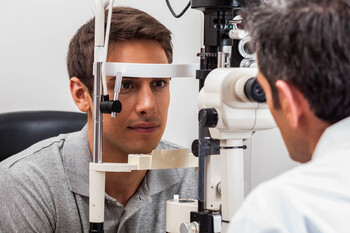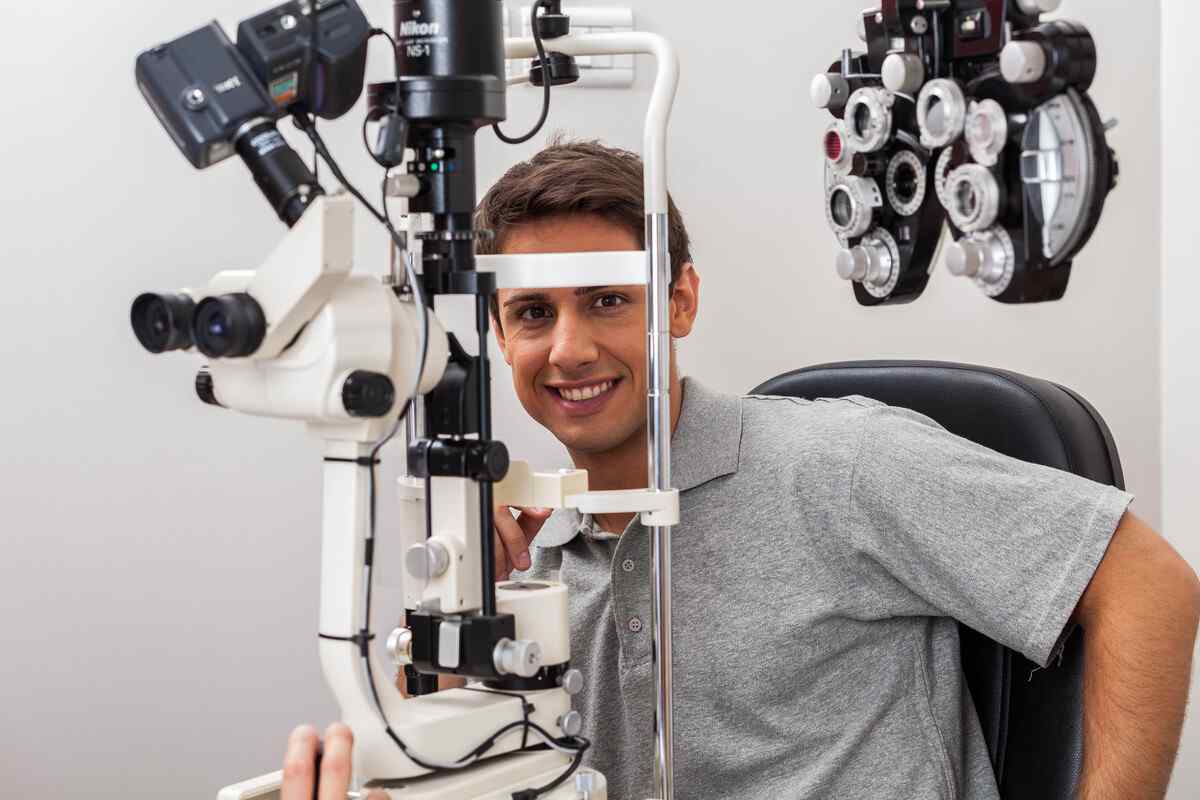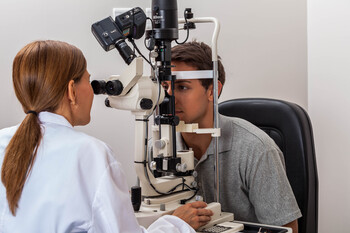For people who wear glasses or contact lenses to be able to see distant objects, laser eye surgery can be an attractive option. Other than the possibility of improved vision without your glasses or contact lenses, what else do you need to know before diving into laser vision correction? Keep reading to find out.
What is Laser Eye Surgery For?
Laser vision correction is a form of refractive eye surgery, a group of surgical procedures designed to correct refractive errors.
Refractive errors include myopia (short-sightedness), hyperopia (long-sightedness), and astigmatism. As a subtype of refractive surgery, laser eye surgery uses a laser beam to change the curvature of the cornea, which is the transparent tissue at the front of the eye.
By using an excimer laser and/or a femtosecond laser, laser surgery removes highly precise microscopic areas of corneal tissue.
Adjusting the shape of the cornea changes the way that light rays bend through the corneal tissue so that they can come to a sharp focus on the light-sensing retina at the back of your eye. This is what you perceive as clear vision.
Is Laser Eye Surgery Appropriate for Me?
Laser eye surgery is for those who are dependent on wearing glasses or contact lenses for the majority of their daily tasks. If you wear contact lenses only for specific activities, such as just to see the soccer ball during a night game, and are otherwise happy with your natural eyesight every other time, laser vision correction and refractive surgery are probably not indicated.
Some people have excellent distance vision but wear reading glasses to see objects close by. These patients are less likely to benefit from laser eye surgery, which is primarily designed to correct refractive errors for long-distance vision.
Even if it sounds like laser vision correction seems like it might be for you, not everyone is a good candidate for other reasons. For example, if you have another eye disease, such as scarring of the retina, that can’t be fixed with treatment, it may not be worthwhile having refractive treatment. Your eye surgeon will assess your eligibility for laser eye surgery if you choose to pursue it.
The Benefit of Laser Eye Surgery
It goes without saying that the primary benefit of laser eye surgery is the ability to see clearly without relying on contact lenses or glasses.
Contact lenses require frequent replacement and maintenance. They can also be associated with dry eyes and irritation, as well as a low infection risk. Glasses can also present an inconvenience, particularly for patients who play contact sports or enjoy water activities.
Some people also prefer not to wear contacts or glasses for cosmetic reasons.
 Options for Laser Eye Surgery
Options for Laser Eye Surgery
There is more than one type of laser vision correction procedure, all of which come with their own pros and cons.
During your initial consultation, your eye doctor will establish which laser eye surgery procedure, if any, is most appropriate to address your vision problems.
The most common forms of laser vision correction are:
LASIK eye surgery (laser-assisted in situ keratomileusis).
During LASIK surgery, a thin flap of cornea is created. An excimer laser can then be used to reshape the deeper layers of the cornea before the flap is replaced in its original position. The LASIK procedure can be used to treat blurred vision from myopia, hyperopia, and astigmatism.
PRK laser surgery (photorefractive keratectomy)
PRK is an older form of refractive vision correction but can be a better procedure for patients with thin corneas. The outer layer of the cornea is removed entirely before the excimer laser removes areas of the underlying layers of the cornea. Like LASIK surgery, PRK can be used for all forms of refractive error.
SMILE eye surgery (small incision lenticule extraction)
SMILE is the newest refractive surgery procedure and offers the benefit of being minimally invasive, which retains better stability for the cornea. However, a limitation of SMILE is that it can only treat myopia and astigmatism, not hyperopia, at this stage.
Understanding the Risks and Complications of Laser Eye Surgery
Although all forms of laser eye surgery, including the popular LASIK surgery, are considered safe and effective, there are always possible complications associated with any medical procedure.
Some of these complications will be specific to the type of laser eye surgery you’re undergoing, such as complications related to the flap of the cornea formed during LASIK eye surgery.
Laser eye surgery can be associated with possible side effects such as:
- Dry eyes
- Light sensitivity
- Blurry vision problems
There are also general risks associated with surgery, such as the possibility of an eye infection or prolonged inflammation.
Factors that Increase Risk
Your eye doctor will advise if you have any factors that may increase your risk of experiencing a complication after laser eye surgery. These can include:
- Problems with eye health, including a history of certain eye infections, glaucoma (high eye pressure), or a disease of the cornea known as keratoconus
- Large pupils can increase your likelihood of haloes and light sensitivity after surgery
- General health problems, such as uncontrolled rheumatic conditions or a low immune system
Is Laser Eye Surgery Permanent?
As the surgical modifications to the cornea cannot be reversed, in a way, laser eye surgery is considered permanent. However, there are situations that may cause you to return to wearing eyeglasses or contacts, which may be worth considering, given that refractive eye surgery is a relatively expensive procedure.
With age, you can expect to develop vision problems such as presbyopia, which will result in you needing reading glasses, and possibly also age-related cataracts. If cataracts develop, you may require further surgery to remove the cataracts and replace them with intraocular lenses.
Patients undergoing refractive vision correction can also experience an event known as regression. This occurs when your original prescription begins to return and may require another treatment to restore your clear unaided sight.
Call us now on (03) 9070 5788to schedule a consultation for Laser Eye Surgery in Melbourne.
Note: Any surgical or invasive procedure carries risks. Before proceeding, you should seek a second opinion from an appropriately qualified health practitioner.
References
What to know about laser eye surgery
https://www.medicalnewstoday.com/articles/laser-eye-surgery





